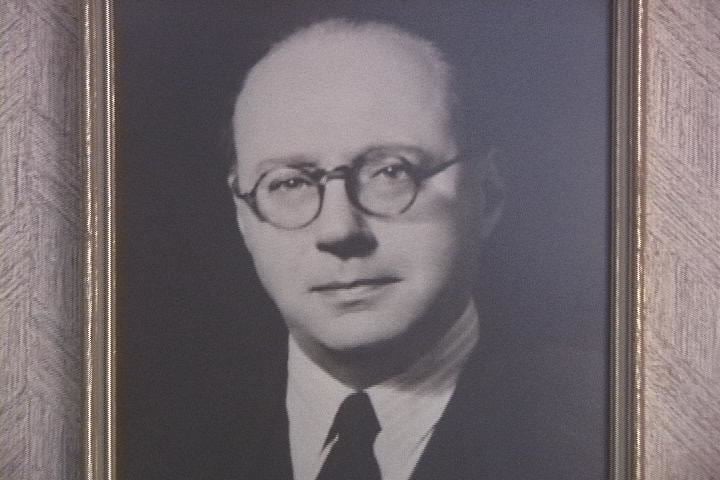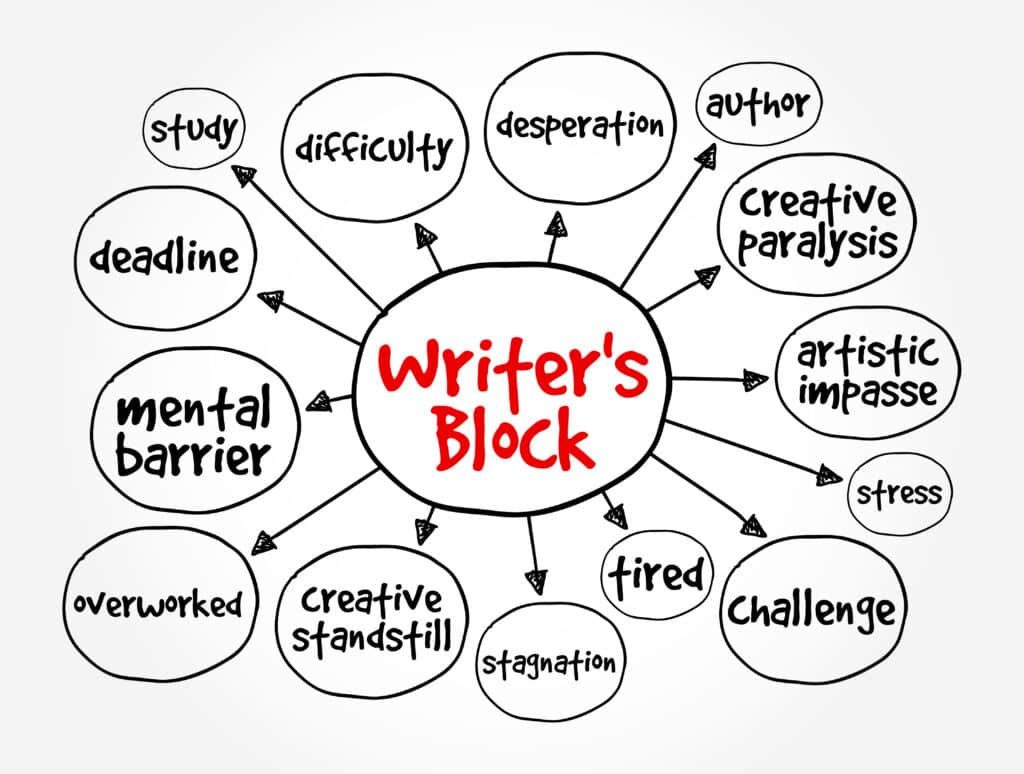
That blank page isn’t just empty—it’s taunting you.
We’ve all felt it.
That uncomfortable pause between wanting to write and actually writing. The blinking cursor. The mounting pressure. The ideas that once felt clear suddenly feel distant or wrong.
Welcome to writer’s block.
It’s one of the most common (and most frustrating) experiences in the creative process—but it’s also one of the most misunderstood. To move past it, we first need to understand what it really is, where it comes from, and why it shows up when it does.
Let’s break it down.
In This Article
- What is Writer’s Block?
- A Brief History of Writer’s Block
- What Causes Writer’s Block?
- What Does Writer’s Block Feel Like?
- Writer’s Block is Not a Sign You’re Not a Writer
What is Writer’s Block?
At its core, writer’s block is the inability to move forward in your writing—even when you want to.
You may be struggling to start, stuck halfway through, or rewriting the same sentence for the tenth time. It doesn’t always feel the same, but it always leads to the same result: not writing.
Some describe it as feeling foggy. Others, as feeling paralyzed. And some simply feel… blank.
But while the experience varies, the effect is the same: you feel creatively blocked, and nothing seems to get you back on track.
Usually, it’s a temporary phenomenon with writer’s overcoming it within minutes, hours, or sometimes days or weeks. So just what causes it?
A Brief History of Writer’s Block
The phrase writer’s block was popularized in the 1940s by psychiatrist Edmund Bergler, who studied the emotional lives of writers and described the phenomenon as a kind of neurotic inhibition. (His theory was, admittedly, a little Freudian-heavy.)

But the idea of creative block has existed for centuries.
Even before it had a name, writers like Samuel Taylor Coleridge and Herman Melville documented long dry spells where they felt unable to write, despite their desire to do so. Coleridge blamed “indefinite indescribable terror” and a kind of paralysis of the will. In other words: even geniuses got stuck.
Can’t move forward?
Celtx’s script editor helps you focus on the story—not the formatting.
Start writing with Celtx for free
What Causes Writer’s Block?
Boredom
Many writers briefly lose their creative spark, tired of the content they’re currently writing. This doesn’t mean they’ve had enough of their story all together, it could just be a moment of boredom that plagues their writing process for a time.
Perfectionism
Everyone wants to create their best work, even before they’ve written their first word. Writers can constantly stew over the story in their head, never quite seeming to get it right. So, they never start writing. This is common at the start of a project, but can present itself at any time, triggering doubt in the writer’s mind.
Worry
Many writers are afraid that their work won’t be received well in the wide world, in a place open to critique and possible negativity. Conversely, some writers are overly critical of their own work, and worry about writing in case they themselves hate what they’ve created.
Fear
Fear of failure. Fear of criticism. Fear that it won’t be good enough. Fear that you’re not good enough. Fear is one of the most powerful blockers.
Wrong timing
Most writers will find themselves inspired at various times of the day, or in certain places and situations. Some are early birds, some night owls, and life can just get in the way, preventing writers from sitting down to create at their ideal time. When an opportunity to write then does present itself, it may not be at the ideal time.
External pressure
Deadlines, expectations, and comparisons can suck the joy out of writing. When writing becomes something you have to do rather than something you want to do, it’s easy to freeze.
Disconnection from your story
Sometimes the story you thought you wanted to write just isn’t working anymore. When you’re no longer emotionally connected, your creativity stalls.
What Does Writer’s Block Feel Like?
Having trouble identifying if the stuck you’re experiencing is the dreaded writer’s block? Here’s what writer’s block might look like in real life:
- You open your document, type a sentence, delete it, and repeat the cycle for an hour.
- You’ve outlined your story a dozen times but still haven’t written a single scene.
- You feel guilt every time you think about your script—but no motivation to open it.
- You’re writing, but it all feels stiff and lifeless. Nothing is flowing.
- You avoid writing altogether and tell yourself you’ll do it “tomorrow.”
If any of that sounds familiar, you’re not alone. These are normal—and extremely common—signals that you’ve hit a creative block.

Writer’s Block Is Not a Sign You’re Not a Writer
It can feel personal—like hitting a wall must mean something about your talent, your drive, or your ability to tell a story. But writer’s block doesn’t mean you’re not a writer. It means you’re a human being in a creative process. That process includes moments of flow, but it also includes confusion, exhaustion, fear, and frustration. All of that is part of the work.
n fact, the experience of feeling stuck is proof you care deeply about what you’re making. You want it to be good. You want it to matter. That kind of pressure can stall even the most seasoned screenwriters.
The truth is that every writer—from students to bestsellers (lookin’ at you, GRRM)—gets stuck.
What separates professionals from people who give up isn’t that they never face blocks—it’s that they learn how to keep going anyway. They learn to pause when they need to, reframe the problem, and take one small step forward when they’re ready.
Writer’s block doesn’t disqualify you. It makes you real.
So what now? Let’s fix it! Our next article will help you break through the block and get back to writing.
Focus on your story, not your formatting.
Let Celtx’s Script Editor automatically apply all industry rules while you focus on the story.
Up Next:

How to Overcome Writer’s Block: 17 Proven Strategies
You’ve named the problem. Now it’s time to break through it.
Explore 17 effective strategies to overcome it and reignite your writing flow.
Click here to continue reading.
